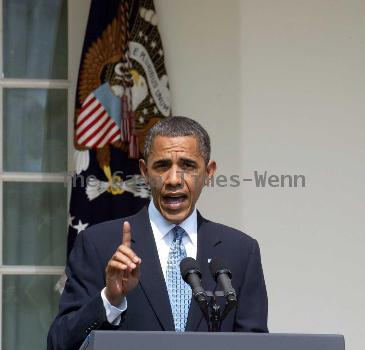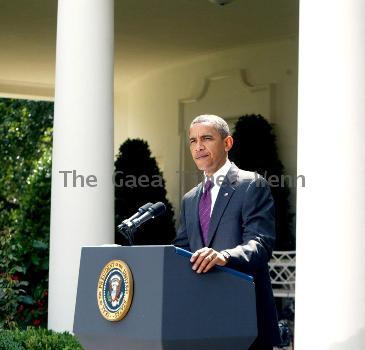SPIN METER: Obama administration avoids mention of problems, delays in weatherization program
By Garance Burke, APFriday, August 27, 2010
SPIN METER: What Biden didn’t mention on stimulus
FRESNO, Calif. — Vice President Joe Biden said this week that the Obama administration “hit the accelerator” toward spending $5 billion under the economic stimulus law to weatherize people’s homes, create thousands of jobs, help consumers save money and put the nation on track for energy independence.
Yet the weatherization program the vice president highlighted in his visit Thursday to New Hampshire is widely considered among the least organized spending projects under the $814 billion economic stimulus law and has regularly been targeted for criticism of its slow progress by auditors and outsiders. Biden didn’t hint much at its troubles.
Nearly 18 months since it started, the stimulus weatherization program has experienced spending delays, inefficiencies and mismanagement. In Biden’s home state of Delaware, the entire program has been suspended since May, and last month federal auditors identified possible fraud.
EDITOR’S NOTE — An occasional look behind the rhetoric of public officials.
In his visit to Manchester, N.H., Biden said the program already had retrofitted 200,000 homes and would meet its ambitious goals of nearly 600,000 homes by March 2012.
He called it “one of our signature programs” under the stimulus law, saying that “thousands of construction workers across the country are now on the job making energy-saving home improvements that will save working families hundreds of dollars a year on their utility bills.”
What Biden failed to mention:
—In Alaska, the program has yet to retrofit one home.
—In Texas, auditors found the private contractor earning the most in stimulus money did shoddy work on 60 percent of the houses it was hired to weatherize.
—In California, a contracting company paid nearly $3 million to caulk low-income residents’ homes didn’t train two dozen of its employees, the state’s inspector general found last week.
Just months ago, at the one-year anniversary of the stimulus law, the Energy Department’s inspector general complained in a report about “little progress” weatherizing homes and said the government’s best efforts “appeared not to have significantly increased the tempo of actual units weatherized across the nation.”
Government rules about how to run the complex program, including how much to pay contractors and how to protect historic homes, were among early hurdles. There were further, unexpected delays as the money flowed from Washington to the states and later to local nonprofits that hired contractors. The recession itself, and state hiring freezes, compounded the problems.
Why would politicians tout a federal spending program with so many challenges? Democratic officials in Washington say they are eager this election year to promote stimulus spending in “bite-sized” pieces. Democrats said polling suggests that voters are more likely to support their record if they can see tangible benefits of the spending, such as winter weatherization programs or smoother roads.
For months, President Barack Obama and his Cabinet have visited businesses and programs that directly benefited from Washington’s efforts to point out specific, local projects that make the enormous program more real for people.
In Delaware, where Biden served as a U.S. senator for 36 years, the tangible benefits of weatherization are hard to find. The program is suspended, and last month federal officials released an audit that found lax oversight, conflicts of interest and possible fraud.
One contractor was paid for insulating an attic workers barely visited, according to the audit, which was obtained by The Associated Press. Companies earned the same amount whether they installed high-quality or low-quality equipment. One resident who didn’t qualify for the program’s income levels got a boiler installed just the same, the Energy Department audit concluded.
“There was a feeling we should get out there and start doing this work and get the contractors trained,” Delaware’s health and social services secretary, Rita Landgraf, said. She asked the state attorney general, Biden’s eldest son, Beau, to investigate. “We didn’t have a strong program in place beforehand, and when we ramped it up under the stimulus it crumbled.”
Biden acknowledged the effort’s slow start as he visited a New Hampshire home being insulated for winter. Assistant Energy Secretary Cathy Zoi said 34 states have now reached their federal targets, a big improvement, and said the job creation figures would keep climbing.
“One could make a strong argument that the weatherization program has gone slowly because folks are concerned with getting it done right,” said Mark Gaffigan, who has been analyzing the program for the Government Accountability Office. “But now the concern is as it ramps up and they try to go fast, will there be corners cut to try to meet this deadline as opposed to making sure the money is spent in the most effective manner?”
Just last week, California Inspector General Laura Chick grew so concerned about Campesinos Unidos Inc.’s failure to train two dozen workers that she recommended the company stop work in Imperial and San Diego counties. State officials said the problems are being corrected.
“This program has flaws, problems and issues and it needs to be rethought,” Chick said. “If it were to go forward exactly as it is today, I would be screaming bloody murder.”
Biden touted the program’s successes at the home of Lynn Dumont, a single mother of two who said she looks forward to seeing her heating bills lowered. But, in an awkward moment, he didn’t exactly win her ringing endorsement.
While she said she was thrilled to have the vice president over, when asked whether she voted for him, there was a long pause.
“Did I vote for him?” she said. “I’d rather not say.”
Associated Press writers Philip Elliott in Washington and Holly Ramer in Manchester, N.H., contributed to this report.
Tags: Barack Obama, Business And Professional Services, California, Delaware, Fresno, Government Programs, Government Regulations, Industry Regulation, New Hampshire, North America, Personnel, Recessions And Depressions, United States











